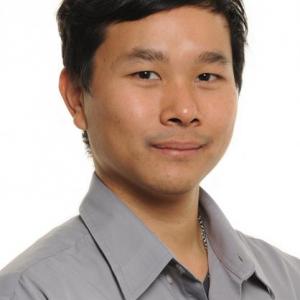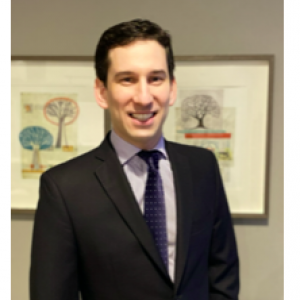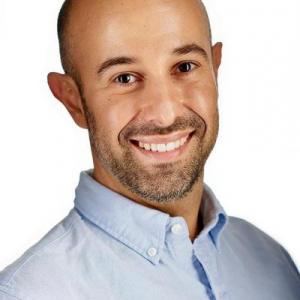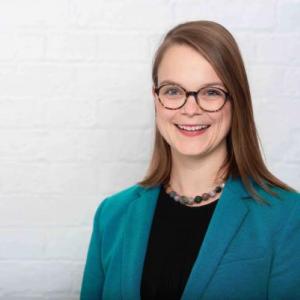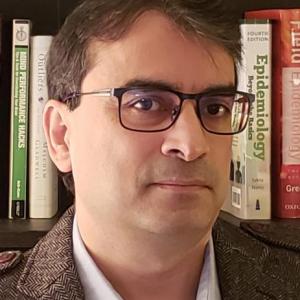Short description:
I have more than ten years of experiences in teaching university students and working as a researcher in Southeast Asia and Europe. Currently, I am a Research Fellow at Health Economics Research Unit (HERU), University of Aberdeen, UK. My research interests are impact evaluation and applied microeconomics with focuses on labour market, education, health outcomes and health behaviours, workforce and organization of cares as well as other social policies in both developed and developing countries. So I am keen to contribute in projects with policy implications in any these topics through meeting, exchanging ideas and collaborating with other researchers and stake holders.
Short description:
Francisco Meneses in an applied microeconomist that works in areas such as labor economics, economics of education and inequality and poverty. He received his Bachelor’s with distinction in Business Administration and Economic sand his Diploma in Applied Macroeconomics with distinction from the Catholic University of Chile. He received his Master’s in Agricultural and Applied Economics from the University of Wisconsin – Madison and his Master’s in Public Administration and International Development from the Harvard Kennedy School of Government. Francisco worked as an economist for the Central Bank of Chile, UNESCO, and World Bank, doing research on policy, education, and inequality in Chile, Ukraine, and Moldova. He has also been part of the governing board of the Centre for Educational Research and Innovation (CERI) of the OECD, and the Director of Research of the Ministry of Education of Chile. He is finishing his PhD in Public Policy at the Duke University.
Short description:
Cameran Ashraf is an assistant professor at the School of Public Policy, Central European University, a human rights defender, and co-founder of international human rights and technology organization AccessNow. In recognition of his work, the European Parliament selected AccessNow as a finalist for the 2010 Sakharov Prize for Freedom of Thought, the European Union's highest human rights honor.
In 2009 he assembled a team providing digital security to the threatened activists, journalists, and vital leadership websites during Iran's Green Movement, "the first major world event broadcast worldwide almost entirely via social media". Cameran and his team defended critical Green Movement websites from state-sponsored attacks, provided personal communications security for hundreds of vulnerable in-country activists and journalists, distributed proxy servers used by over 40,000 Iranians daily, facilitated more than 3 million protest video downloads from inside Iran, and played a key role in connecting millions worldwide to the peaceful protests. This work led Cameran to co-found AccessNow, one of the world's largest international human rights organizations dedicated to defending and extending the digital rights of users at risk.
Cameran has been invited to speak at Harvard University, the Massachusetts Institute of Technology, UC Berkeley, the Organization for Security and Co-operation in Europe (OSCE), and as an invited expert for the Kofi Annan Commission on Elections and Democracy in the Digital Age. He has also appeared in the New York Times, National Public Radio, Wired Magazine, and Bloomberg BusinessWeek.
He has advised the International Criminal Court on digital security, given expert input to the offices of U.S. Senators Lindsay Graham and John McCain on global censorship policy, is a recipient of the University of California's Herbert F. York Global Security Fellowship, and awardee of a "Break the Blackout" grant from Avaaz.org.
Cameran continues to work for human dignity and human rights through teaching, research, and meaningful engagement with students. He recently served as Deputy Director of the Open Society Foundations Internship for Rights and Governance, helping to prepare the next generation of human rights defenders. In 2015, he completed his Ph.D. at UCLA on the geopolitics of Internet censorship and cyberwar.
Short description:
Dr Johanna Koehler is Assistant Professor of Environmental Policy and Governance in the Department of Environmental Policy Analysis at the Institute for Environmental Studies (IVM), Vrije Universiteit Amsterdam. Her research interests include sustainable water services and net-zero energy transitions. She investigates how risks and responsibilities can be re-conceptualised and re-allocated in pluralist governance arrangements between the state, market, and communities. To date, she has focused on the interplay of water risks and institutional change as well as new professional water service delivery models emerging across sub-Saharan Africa. Theoretically, her work advances institutional theory of risk; methodologically, she uses qualitative and quantitative methods, including experiments, to understand social and institutional behaviours with regard to environmental governance, working with governments, the private sector, and end users. Johanna is also Honorary Research Associate at the School of Geography and the Environment and the Smith School of Enterprise and the Environment, University of Oxford.
She is co-founder of a business model for maintaining drinking water infrastructure in marginalised areas of Kenya, FundiFix Ltd., which serves over 80,000 people with reliable water services. Her research on sharing water-related risks between the public and private sectors and communities was taken up in Kenya’s Water Act 2016. The model has since been scaled up by UNICEF in Bangladesh and is part of the wider Uptime consortium of service providers maintaining rural water infrastructure across Africa.
Short description:
I am a physician epidemiologist and an Assistant professor in the School of Public Health and Health Systems at the University of Waterloo. My research interests focus on syndemics of infectious diseases like HIV, hepatitis B and C, tuberculosis and sexually transmitted infections. My research aims to evaluate the determinants of syndemics, extend the syndemic framework to non-communicable diseases and cancers, and design and evaluate prevention strategies to address syndemics. My other areas of interest include the development and application of methods for analysis of big data, global health, and spatial epidemiologic methods and their application to public health practice. In addition to the above, I have worked internationally in academia and the development sector (World Health Organization and UNICEF).
Short description:
Aaron Francis is a doctoral student in Global Governance at the University of Waterloo, a multidisciplinary artist and a curator. In the past year, Aaron has exhibited works from his Vintage Black Canada initiative at the BAND Gallery Toronto, the Gladstone Hotel Toronto, and the Contact Photography Festival as well at the Centre for International Governance Innovation (CIGI). The former chair of the City of Kitchener’s Arts and culture advisory committee, most recently in June 2020 Aaron co-organized and marshaled the Black Lives Matter Solidarity March that saw an estimated 30,000 attendees in his hometown of Kitchener, Ontario, Canada.
Short description:
Katie Hirono is a PhD candidate in the Global Public Health Unit at the University of Edinburgh. Her research focuses on the role of participatory processes, such as citizens’ juries and health impact assessment, for improving policymaking and health equity. Katie also has a long-standing record of helping to support underserved communities. She served on the board of directors for a health clinic in Maryland that serviced undocumented Latino populations, and volunteered as a Spanish medical translator at a free health clinic in Virginia. She has worked as a consultant to the Pan American Health Organization/World Health Organization in the department of Gender, Diversity and Human Rights.
Short description:
I am a PhD canditate at Global Governance Deparment. I am holding a Master of LLM with 7 years of United Nations High Commissioner for Refugees (UNHCR) experience in working with refugees, specifically in providing legal and psychosocial support to sexual and gender based violence survivors, unaccompanied and separated children, and children exposed to child marriage and child labour. I have a project and training expertise on International Refugee Law, International Human Rights Law and Refugee Protection.
Short description:
Aviva Silburt is a PhD Candidate at the University of Waterloo's Balsillie School of International Affairs researching the complex linkages between mining conflicts and broader peacebuilding challenges in Guatemala. Aviva has professional experience in public policy and peacebuilding, and has worked in various capacities with the Government of Canada, UN Women Canada, and grassroots NGOs in Rwanda, Bosnia, and the Philippines. She is currently a policy advisor for the Canadian Ombudsperson for Responsible Enterprise to investigate human rights abuses involving Canadian companies operating abroad.
Short description:
Mirko (PhD, Sydney; MPhil, Edinburgh; MSc and BA, Milan) is an Associate Professor of Philosophy and Computer Science and Head of the Human Machine Interaction Lab at Innopolis University. He is a Member of the Association for Computing Machinery (2022-), a Honorary Member of the Lab for Industrializing Software Production (LIPS) in the Faculty of Computer Science and Engineering at Innopolis University (2021-), an Expert Member of the UNESCO Inclusive Policy Lab (2021-), and Contributing Member of the Astana Club (2022-).
He was a Member of Task Force 1 on Global Health and Covid 19, at G20, 2021, a Senior Research Fellow (2021-2018) at Saint Petersburg State University, an Assistant Professor of Philosophy at Innopolis University (2022-2020) and at Nazarbayev University (2020-2019), a Honorary Research Fellow (2019-2021) and a British Academy Postdoctoral Fellow (2019-2016) in the Department of Philosophy at King's College London , and a visiting scholar (2017) at the National Research University Higher School of Economics (HSE) in Moscow. He was also visiting fellow at Aarhus University, and at Ruhr University Bochum.
Over his career, A/Prof Farina received approximately USD1 Million in research funding. A/Prof Farina has over 60 peer-reviewed publications with many articles in top-tier (Q1) journals (in both philosophy and computer science) and several chapters in prestigious edited collections (e.g. Oxford University Press, MIT Press, Routledge, Springer Nature). During his career A/Prof Farina delivered more than 75 talks at international conferences. A/Prof Farina is currently co-editing two books on expertise (one with Duncan Pritchard and Andrea Lavazza)- invited by- Oxford University Press; the second for Routledge. He is also co-editing two Special Issues on distributed cognition for Cognition, Technology & Work and Frontiers in Psychology
Personal Webpage: https://mirkofarina.weebly.com/

